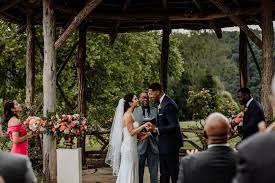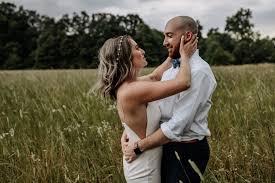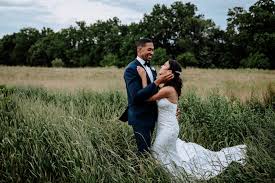How Many Photos Should a Wedding Photographer Give Their Client?
For new wedding photographers or clients looking to see what is “normal”, it’s a common question to wonder how many photos should be delivered with the wedding photo gallery. For a standard 8 hour day of wedding photography, this means a photographer should expect to pass along 400-800 photos to their clients.
For more on how we arrive to this number, read our thoughts below!
Quality, Not Quantity
In theory, having a lot of photos can seem like a good thing. But, there is certainly a point where the number of photos can be excessive – especially when they seem redundant. At the average wedding, combined we take roughly 4,000 photos. As a solo wedding photographer, we take about 2,000 images individually. Most clients would not want all 2,000 or 4,000 of these pictures. That’s crazy! If you have someone looking to get all the RAW images or something – we would suggest steering clear. We’ll cover the why of this in our next section. Ultimately – you could deliver less wedding photos than average and still have super happy clients if the photos are all great.
Photographers Cull Their Photos
Remember the 4,000 photos we just mentioned that we take during a wedding day? When we get home, we upload them to our computer, then we cull them down to just the “keepers.”
There are plenty of reasons why we want to scale back the images we have taken. These include:
- Removing photos that are unappealing (ie: people making weird faces, poor lighting, etc.)
- Taking out repetitive images (ie: too much reception dancing photos, too many walking down the aisle shots, etc.)
- Removing out of focus and poorly exposed images
This culling process is essential to really any digital wedding photographers workflow. It’s easy to be trigger happy and shoot a lot of pictures – so reducing the number of images you’d want to share with your clients in the end product is key to this process.
Get the Images the Client(s) Want!
While it’s good to know how many photos should be reasonably expected, knowing that you are to deliver ~400-800 photos for a standard wedding day only tells part of the story. In truth, most clients want a good distribution of images so they encompass ALL of their wedding day effectively. If you provide 5 getting ready photos and 200 reception photos, it may seem that something is a little off. Keep this in mind when photographing the wedding. And of course, before the wedding day, consider reaching out to your client(s) directly and asking them what is most important.

Set Your Prices So You Can Live
One of the BIGGEST MISTAKES of any small business owner is setting prices just based on what you feel people will pay you OR when comparing your service with someone else.
Let’s face it – if you’re wondering what to charge, you’re probably starting off by looking through Pricing pages of other already established wedding photographers. The thought process probably goes like this…”If they can charge that much money, so can I!”
Reality is very different – and your prices should reflect your personal reality.
This starts with setting prices that allow you to have enough money to live the life you want to live. You should be able to earn enough so you can pay your rent, bills, grocery shopping, and so on. It might be the case that you don’t need to charge the sky high prices of your competition – and can move towards those numbers over time as you become more “in demand”.
Note: when you just start off in wedding photography, your prices will be low. This is expected, and convincing people to pay large sums of money for your service requires a quality portfolio

Questions a wedding planner should ask you
Are you hiring a wedding planner? How did you decide on THE ONE?
1. What’s your budget, how many people are you inviting, and what’s your dream venue?
These might be three questions rolled into one, but a good wedding planner will want to know your answers to these questions so they can get a sense of not only what kind of wedding you want to plan, but if you can realistically afford it.
“I just met someone with a $200,000 budget who wanted a four-day event in the Hamptons. After listening to them, I said there’s no way they could afford what their vision is,” Blum says. “Or let’s say you want to invite 500 people and have it in a garden. It’s unlikely you’re going to find a garden that’s big enough.”
Another important tip? “Don’t find someone who just agrees with you all of the time,” Blum says. Otherwise, you may find yourself having to reimagine big details in the middle of the planning process—after you’ve had your heart set on them.”
2. Do you have any vendors in mind?
“If a planner tries to talk you into their vendors at the first meeting—such as saying, ‘When are you scheduled to look at The Plaza?’—they’re probably getting referral fees,” Blum says. “If the planner is forceful and not a good listener, that’s an issue.” Asking if you have any vendors in mind (and their response when you give them the answer), will let you know if they have a hidden agenda. Ideally if you do have a photographer or DJ you love, they’ll be on board with getting them on board.
3. How involved do you expect a wedding planner to be?
Whether you want a wedding planner to handle every last detail and you just show up at the wedding, or you want someone you can collaborate with the entire way, a wedding planner should find out what kind of wedding planner you’re looking for. Blum says not only does it help her plan better, but it’s also how she determines a price tag. According to LearnVest.com, the planner who primarily offers advice along with day-of wedding coordination “could run you $3,700,” while “fees for a full-service professional shoot up to more than $5,000.”
4. What weddings have you been to that you didn’t like?
“People don’t usually even know what their priorities are until you ask them specific questions,” says Blum. “For instance, if you hated the food [at another wedding], that means that you’re someone who pays attention to food. Or if all you talk about is the flowers, it becomes obvious that you’re really interested in decor.”

Questions Wedding Photographers Should Ask Their Clients
How many guests are invited to the wedding?
Knowing a rough number of guests that are expected to attend the wedding will help you to plan how you will approach photographing the event. It may also help you determine whether or not you need a second photographer or not. In some cases, knowing the number of guests that are attending the venue will also help you determine the price that you wish to set for your services as it can significantly change the difficulty of the work that you carry out and your costs.
Do you have a list of certain poses and photographs that you specifically want to capture?
Some couples will have seen the wedding photographs from one of their friends, or from a famous wedding online and may want to recreate a similar photo for their own wedding. It might help you if you make a checklist of all the poses, angles, and moments that they specifically want to capture so you can make sure that you’re ready for them.
Would you like to take some photographs prior to or after the wedding?
The time that you’re able to spend with the couple before the wedding will not only help break the ice but also understand how they handle themselves in front of a camera so you can better manage yourself (and them) on the day of the actual wedding.
Will there be someone apart from the bride or groom at the wedding that will help me arrange things?
Unless you’re photographing the wedding of a family member then it is almost certainly going to put you in some awkward situations when you are trying to get the attention of a group of people but they can’t seem to hear you. A member of the family, which isn’t as stressed as the bride or groom themselves, that can help you manage and set up the group photos, give you guidelines at certain moments and more is going to be invaluable in ensuring you can capture the best possible photographs.
Your wedding and uplighting
When it comes to your wedding, we know how tough it can be to manage your budget. Here’s an easy list to help you decide if you need uplighting for your wedding.
You may need uplighting if…
- Your wedding is in an ugly venue. Couples pick venues for dozens of different reasons. Couples sometimes pick venues for sentimental reasons. Sometimes they pick them based completely on the location. Sometimes a venue has fantastic food, but just needs a face lift. Uplighting can do wonders for a bland slab of drywall or an unimpressive corner, tying it into the look of the rest of your party instead of sticking out.
- Your wedding is in a beautiful space. If you’re getting married in a remarkable old hotel, a modern gem or a building with some history, lighting will often highlight the beauty in an already impressive space. Architectural features like columns, windows, and ceilings can be lit for ambient effect. Materials like unfinished brick and plaster often look dynamic and beautiful when uplit. Many brides will see a few pictures of poorly-designed uplighting looks and become discouraged. Like most things, if done wrong, uplighting can be tacky. If designed correctly, uplighting will take the look of your venue to the next level.
- Your wedding is in a familiar space. Increasingly more couples are using old barns, non-conventional event spaces, or just using their parents back yard for their weddings. Uplighting creates a new perspective on familiar items. This adds a flash of drama that is crucial in an otherwise ordinary space.